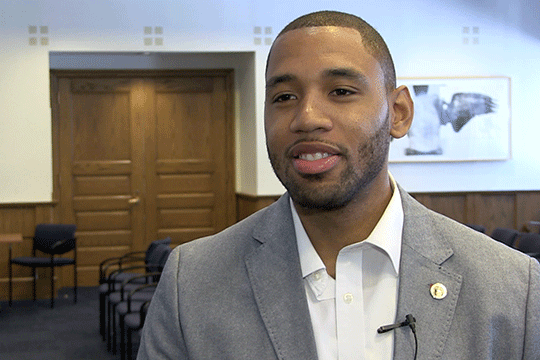Exploring the Roots of Black Schooling: Daniel Harris (M.A., Sociology and Education)

Life before TC
Daniel Harris spent seven years in Washington D.C. before coming to Teachers College, studying psychology at Georgetown University, where he was an All-American in track and field, and working at SEED public charter school. He was drawn to the nation’s capital because of its rich history of black contributions to American society, and education in particular (for example Dunbar High School was the nation’s first public high school for Black students).
Why TC
While serving as a graduate research intern at the White House Initiative on Educational Excellence for African Americans, Harris met executive director David Johns (M.A. ’06), who inspired him to come to TC and attend the College’s program in Sociology and Education. Harris wanted to explore the experiences of African-American men like himself. “A lot of times we read and hear from dominant discourses a one-sided view of the contributions of black males in education,” he says. “I wanted to learn from black males themselves about their opportunities and perspectives, particularly as teachers in K-12.”
TC Takeaway
For his master’s thesis, Harris, who is a member of Omega Psi Phi, one of the historic “divine nine” Black fraternities, interviewed members who teach in the D.C. area. “Black Greek letter organizations have contributed to education in meaningful ways since their founding almost a century ago,” he says. “I wanted to connect the dots between the historical contributions of black males and what they are doing today.” In particular, he says, his research suggested that these men may be better prepared than many for the challenges and stresses of teaching, and more likely to stay in the field. More broadly, Harris challenges the idea that black male teachers are expected to serve as role models; he argues that this frame is too narrow and devalues the substantive learning and leadership that black men can bring to the classroom.
What’s Next
Harris heads next to the University of California at Los Angeles to work toward a doctorate in Higher Education and Organizational Change. “I’m really interested in how different leadership attributes impact organizations, particularly in higher education,” he says. His long-term goal: To be a college president.
Published Friday, May 1, 2015